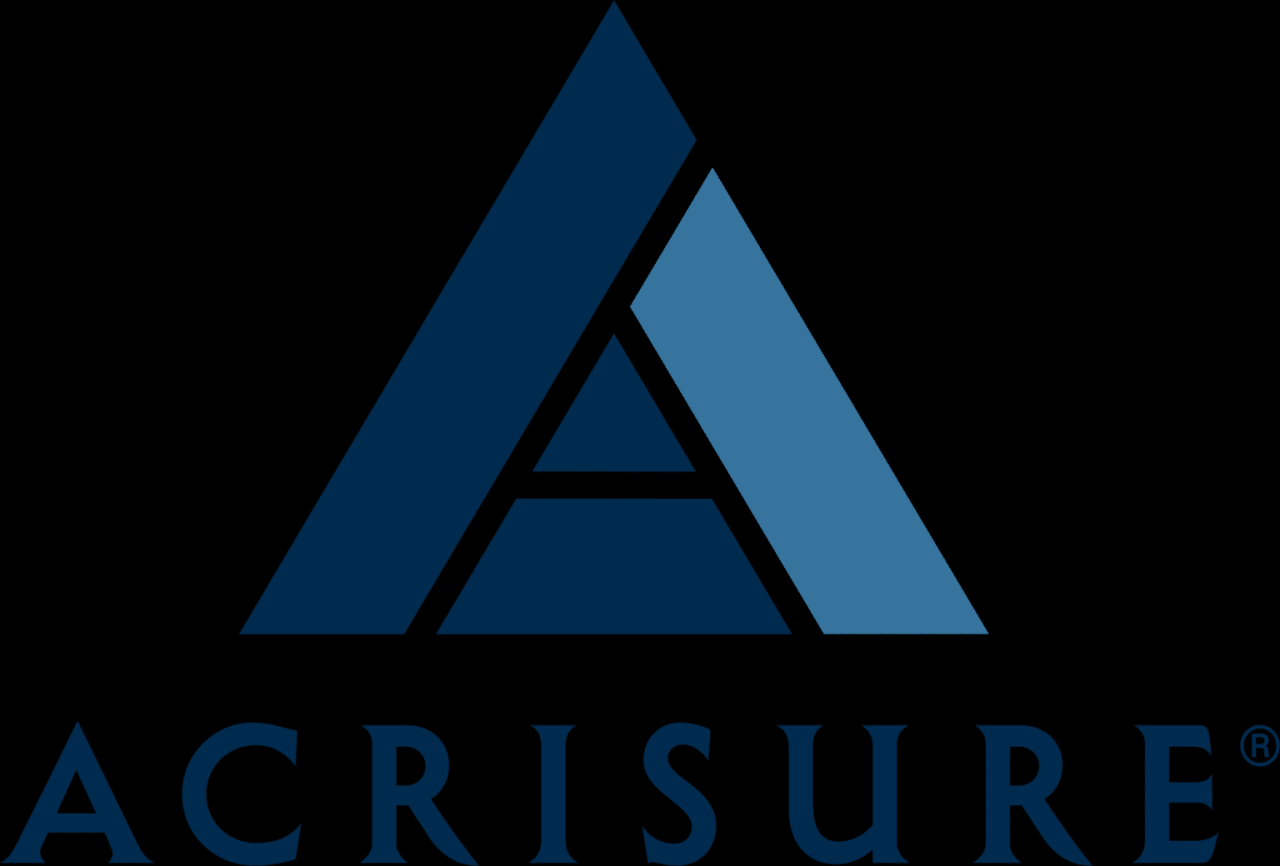
Acrisure, a rapidly expanding insurance brokerage, presents a compelling case study in modern business strategy. Its aggressive acquisition approach and technological integration have significantly reshaped the insurance landscape. This analysis delves into Acrisure’s business model, market position, financial performance, and commitment to corporate social responsibility, offering a nuanced perspective on its current standing and future potential.
We’ll explore Acrisure’s diverse insurance offerings, its competitive advantages, and the strategic initiatives driving its remarkable growth. The analysis will also address potential challenges and risks, providing a balanced view of this influential player in the global insurance industry. The information presented aims to provide a clear understanding of Acrisure’s impact and future trajectory.
Acrisure’s Insurance Offerings
Acrisure is a global insurance broker and fintech company offering a wide array of insurance products and services. Their expansive portfolio caters to diverse client needs across numerous industries, making them a significant player in the insurance market. This section details their offerings, target markets, and key value propositions.
Acrisure’s comprehensive insurance solutions span various sectors and risk profiles. Their client base includes small businesses, large corporations, and high-net-worth individuals, demonstrating the adaptability of their offerings. They leverage technology to streamline processes and provide customized solutions tailored to specific client requirements.
Acrisure’s Insurance Product Portfolio
The following table provides a concise overview of Acrisure’s key insurance product offerings. It should be noted that the specific products and services offered may vary by location and subsidiary.
| Product Type | Target Market | Key Features | Example Client Industry |
|---|---|---|---|
| Property & Casualty Insurance | Businesses of all sizes, individuals | Coverage for property damage, liability, and business interruption; customizable policies; competitive pricing | Retail, Manufacturing, Healthcare |
| Commercial Auto Insurance | Businesses with vehicle fleets | Coverage for accidents, damage, and liability; fleet management tools; driver safety programs | Transportation, Logistics, Construction |
| Workers’ Compensation Insurance | Businesses with employees | Coverage for employee injuries and illnesses; safety consulting; claims management | Construction, Manufacturing, Healthcare |
| Cybersecurity Insurance | Businesses of all sizes | Coverage for data breaches, cyberattacks, and ransomware; incident response services; security awareness training | Technology, Finance, Healthcare |
| Health Insurance (for businesses) | Small to medium-sized businesses | Employee health benefits; various plan options; wellness programs | Technology, Retail, Hospitality |
| Life Insurance | Individuals and families | Term life, whole life, and universal life insurance; financial planning support | Various, across all sectors |
Acrisure’s Value Proposition by Customer Segment
Acrisure tailors its value proposition to meet the unique needs of different customer segments. This approach ensures that each client receives the most relevant and effective insurance solutions.
For small businesses, Acrisure offers simplified insurance processes, competitive pricing, and access to risk management resources. They emphasize ease of use and affordability, helping smaller companies secure vital coverage without unnecessary complexity. For example, a small bakery might find Acrisure’s streamlined online quoting and application process particularly beneficial.
Large corporations benefit from Acrisure’s expertise in managing complex risks and providing comprehensive insurance programs. Their sophisticated risk assessment and mitigation strategies, along with access to specialized insurance products, cater to the needs of multinational companies. A global manufacturing company, for instance, might utilize Acrisure’s international insurance expertise to manage risks across multiple jurisdictions.
High-net-worth individuals receive personalized service and access to exclusive insurance products designed to protect their assets and lifestyle. Acrisure provides tailored solutions for unique insurance needs, such as art collections, high-value homes, and personal liability. A wealthy family owning multiple properties and valuable art pieces would appreciate this personalized approach.
Acrisure’s Market Position and Competition

Acrisure operates in a highly competitive insurance brokerage market, characterized by both large multinational players and numerous smaller, specialized firms. Understanding its position relative to key competitors is crucial to assessing its overall success and future prospects. This section will analyze Acrisure’s market share, competitive advantages, and disadvantages compared to its main rivals.
Acrisure’s Key Competitors
Acrisure’s primary competitors include established global insurance brokerage giants such as Marsh McLennan (MMC), Aon, and Willis Towers Watson (WTW). These firms possess extensive global networks, deep client relationships, and a broad range of services. In addition, numerous regional and niche players compete with Acrisure, particularly in specific insurance sectors or geographic areas. The competitive landscape is dynamic, with ongoing mergers, acquisitions, and organic growth shaping market share and influence.
Market Share Comparison
Precise market share data for private companies like Acrisure is often unavailable publicly. However, based on publicly available information and industry reports, Acrisure is considered a significant player, particularly in the independent insurance brokerage space. While it doesn’t yet match the global market share of giants like Marsh McLennan, its rapid growth through acquisitions has significantly increased its presence in recent years. This suggests a trajectory towards challenging the established players for greater market share. Precise figures are difficult to obtain due to the private nature of Acrisure and the complexities of measuring market share across diverse insurance sectors.
Acrisure’s Competitive Advantages and Disadvantages
Acrisure’s competitive advantages stem from its aggressive acquisition strategy, allowing it to rapidly expand its geographic reach and service offerings. Its technology-focused approach, emphasizing data analytics and digital platforms, offers potential for efficiency gains and improved client service. However, integrating acquired companies effectively and maintaining consistent service quality across a rapidly growing network presents significant challenges. Furthermore, competition from established players with long-standing brand recognition and extensive client relationships remains a significant hurdle. The rapid pace of its growth could also introduce risks associated with overexpansion and integration difficulties.
Competitive Analysis Matrix
| Feature | Acrisure | Marsh McLennan | Aon | Willis Towers Watson |
|---|---|---|---|---|
| Global Reach | Expanding rapidly through acquisitions | Extensive global network | Extensive global network | Extensive global network |
| Market Share | Significant growth, precise figures unavailable publicly | Largest global market share | Significant global market share | Significant global market share |
| Technology Focus | High, leveraging data analytics and digital platforms | High investment in technology | High investment in technology | High investment in technology |
| Client Relationships | Developing, benefiting from acquired companies | Long-standing and extensive | Long-standing and extensive | Long-standing and extensive |
| Financial Strength | Strong, fueled by private equity backing | Very strong | Very strong | Very strong |
Acrisure’s Financial Performance

Acrisure, a rapidly growing global insurance brokerage, has demonstrated strong financial performance in recent years, marked by consistent revenue growth and expansion into new markets. While precise, up-to-the-minute financial data requires access to proprietary reports and SEC filings (if publicly traded), a general overview based on publicly available information illustrates Acrisure’s financial health. This analysis will focus on observable trends and publicly available information to provide context.
Revenue and Profit Growth
Acrisure’s revenue has experienced significant year-over-year growth. This growth is attributed to a combination of organic growth within existing operations, strategic acquisitions, and expansion into new geographic markets and insurance verticals. While specific figures fluctuate, consistent double-digit percentage growth in revenue has been reported in recent years. Similarly, Acrisure has shown consistent profitability, although the exact profit margins can vary depending on factors like acquisition costs and market conditions. Analyzing the company’s financial statements would provide a more precise understanding of the profit margins and their evolution over time.
Key Financial Ratios and Metrics
Several key financial ratios and metrics can be used to assess Acrisure’s financial health. These include, but are not limited to, the debt-to-equity ratio, which indicates the company’s leverage; return on equity (ROE), measuring profitability relative to shareholder investment; and revenue growth rate, showing the expansion of the business. A healthy debt-to-equity ratio suggests responsible financial management, while a strong ROE indicates effective utilization of capital. High revenue growth rates demonstrate the company’s ability to capture market share and expand its operations. Access to Acrisure’s financial statements would allow for a precise calculation and interpretation of these ratios.
Revenue Growth Visualization (Five-Year Trend)
To visualize Acrisure’s revenue growth over the past five years, imagine a line graph. The horizontal axis represents the years (Year 1, Year 2, Year 3, Year 4, Year 5), and the vertical axis represents revenue in millions or billions of dollars (depending on the scale of Acrisure’s revenue). The line would show an upward trend, illustrating the growth over time. The steeper the slope of the line in a given year, the greater the revenue growth during that period. The graph would clearly demonstrate the overall positive trajectory of Acrisure’s revenue. Note that the precise values would need to be obtained from Acrisure’s financial reports.
Investment Strategies and Their Impact
Acrisure’s investment strategies significantly influence its financial performance. The company likely employs a combination of organic growth initiatives and strategic acquisitions to expand its market reach and service offerings. Acquisitions allow for rapid expansion into new markets and product lines, while organic growth demonstrates the strength of the core business. These investments, while requiring capital expenditure, ultimately contribute to revenue growth and increased market share. The success of these strategies depends on factors such as the valuation of acquired companies, integration effectiveness, and the overall market environment. A thorough analysis of Acrisure’s investment portfolio and acquisition history would provide a deeper understanding of the impact of these strategies.
Final Conclusion

In conclusion, Acrisure’s success story is a testament to a well-executed strategy combining acquisitions, technological innovation, and a focus on diverse customer segments. While challenges remain in a competitive market, Acrisure’s robust financial performance and commitment to corporate social responsibility position it for continued growth and influence. Further research into specific market segments and technological advancements will offer even deeper insights into Acrisure’s long-term prospects.
Query Resolution
What types of insurance does Acrisure offer?
Acrisure offers a wide range of insurance products, including property and casualty, life insurance, health insurance, and more, catering to various industries and customer needs.
How does Acrisure’s acquisition strategy work?
Acrisure strategically acquires independent insurance agencies, expanding its market reach and service offerings. This allows them to gain access to new client bases and expertise.
Is Acrisure publicly traded?
No, Acrisure is privately held.
What is Acrisure’s commitment to ESG?
Acrisure has publicly stated commitments to environmental sustainability, social responsibility, and good governance, though specific details may vary and should be sought from their official reports.